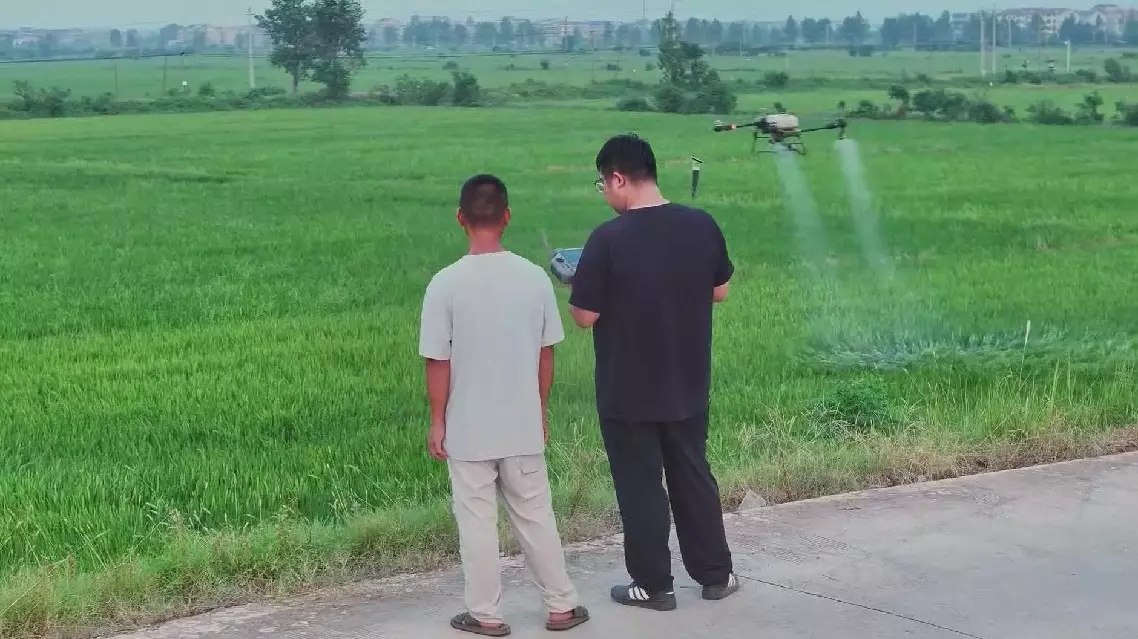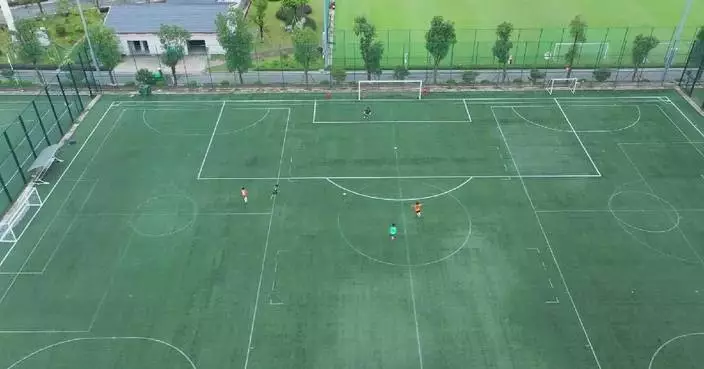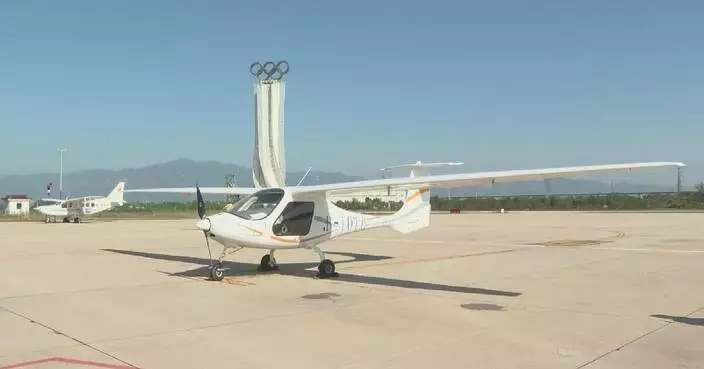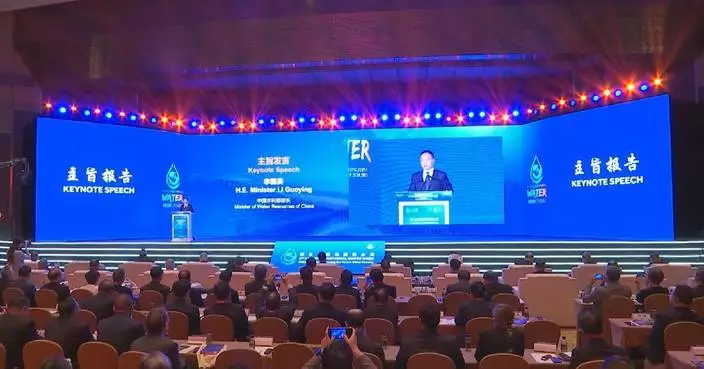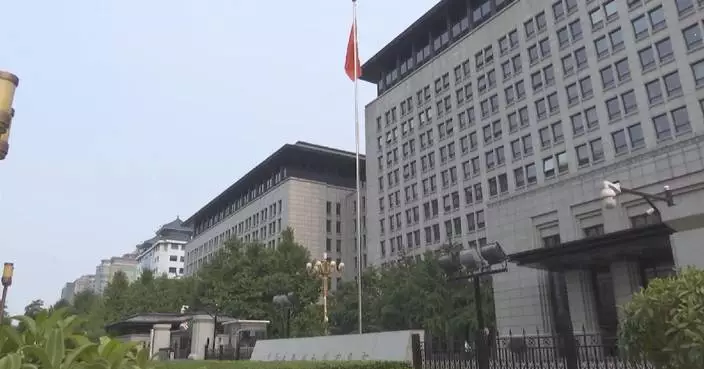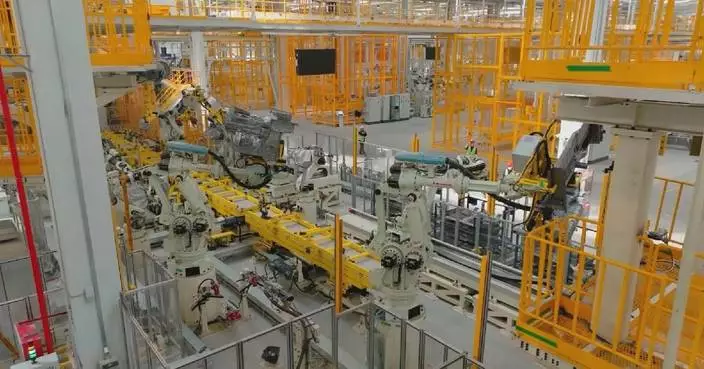The keynote speech by Chinese President Xi Jinping at a reception for the team behind the pioneering Chang'e-6 lunar mission at the Great Hall of the People in Beijing on Monday has inspired China's space sector to forge ahead, according to the engineers and scientists who attended the event.
Xi, also general secretary of the Communist Party of China Central Committee and chairman of the Central Military Commission, pointed out that the Chang'e-6 mission collected the first samples from the far side of the moon in human history and pioneered a number of key technologies, representing another landmark achievement in China's lunar exploration program.
Xi said that over the past 20 years the lunar program has been characterized by its high quality and high efficiency, and it has made significant contributions to the development of the country's space industry and for humankind's exploration of space.
"After listening to the General Secretary's speech at the reception, I was very inspired and excited. The Long March series of carrier rockets are responsible for the important mission of running the 'first leg' in the lunar exploration project. At present, we are steadily advancing the development of heavy-lift carriers and manned lunar landing rockets, providing strong support for subsequent major engineering tasks such as space station application and development projects, manned lunar exploration, and planetary exploration," said Wang Jue, chief commander of the Long March-5 carrier rocket program.
"In his speech, the General Secretary particularly emphasized that we must continue to build the momentum of our space mission efforts and progress. In the field of lunar exploration, we will build a basic model for a lunar research station. For deep space exploration, we will launch the Tianwen-2 probe next year to explore asteroids and collect samples. We will carry out our lunar exploration and deep space exploration missions in accordance with the General Secretary's requirements," said Bian Zhigang, deputy head of China National Space Administration (CNSA).
Xi stressed that over the past 75 years since the founding of the People's Republic of China, generations of Chinese aerospace workers have insisted on self-reliance and independent innovation to build the aerospace industry from nothing to a world leader, which is achieving historic, high-quality, leapfrog development.
"From Chang'e-1 to Chang'e-6, all of our country's technologies have independent intellectual property rights, which makes our steps more solid. We will definitely keep in mind the General Secretary's instructions to us and do our follow-up work better," said Deng Xiangjin, deputy chief designer of the Chang'e-6 lunar probe.
Xi pointed out that the Chang'e program belongs to both China and the world, and China will encourage international exchanges and cooperation in aerospace to better benefit mankind.
"We uphold the spirit of General Secretary Xi's instruction that Chang'e belongs to both China and all mankind, and welcome scientific research institutions from various countries and scientists from around the world to participate in the development and construction of the international lunar mega-science project. We hope to achieve 'three fives' within 10 years, that is, 50 countries, 500 scientific research institutions, and 5,000 foreign scientists to discuss, build, and share with us to jointly realize this great project," said Wu Weiren, chief designer of China's lunar exploration program.
"The General Secretary stressed the need to strengthen international exchange and cooperation. We will also launch Chang'e-7 and Chang'e-8 in the future, and invite more international partners to join us. We will organize scientific research on lunar samples, strive to produce results early and quickly, and make our Chinese contribution to expanding human knowledge," said Guan Feng, director of the Lunar Exploration and Space Engineering Center of CNSA.
In his speech, Xi also expressed his hope that all comrades in the aerospace sector will continue to work hard and implement major aerospace projects such as deep space exploration, promote the comprehensive development of space science, space technology, and space applications, and promote the construction of a powerful country and the great cause of national rejuvenation through Chinese-style modernization.
"General Secretary Xi Jinping pointed out that we should carry forward the spirit of lunar exploration, which makes me feel particularly excited. I will lay a solid professional foundation and enhance scientific research capabilities, and I also look forward to my own scientific research results going into space in the future," said Li Peiran, student at Beihang University, the country's top university for aeronautics and astronautics.
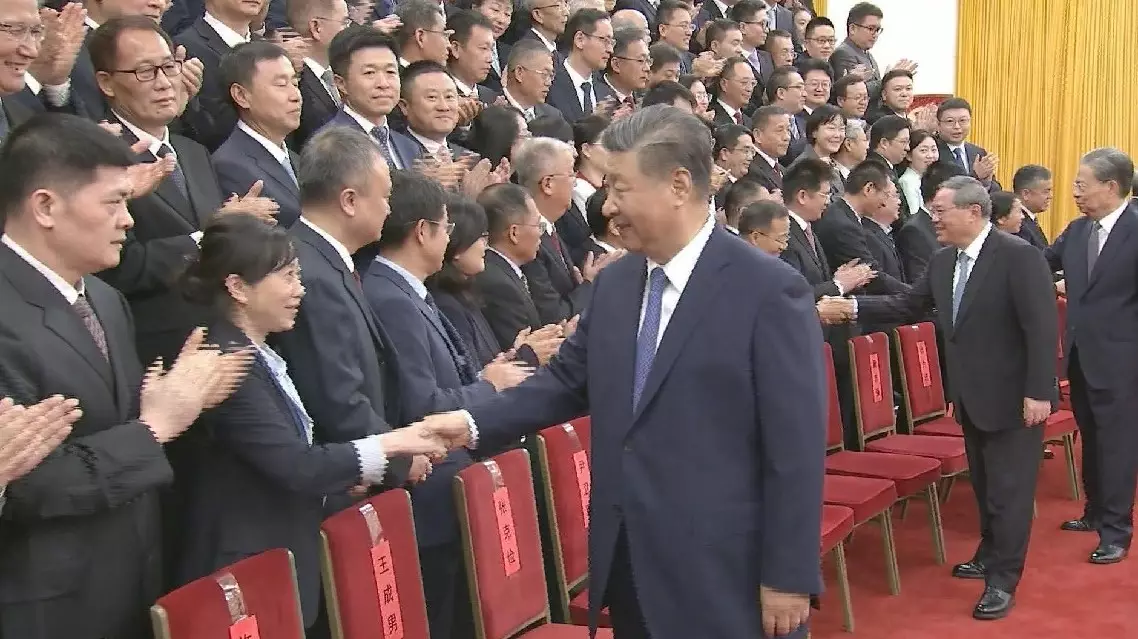
Xi's speech on Chang'e-6 mission inspires China's space personnel to forge ahead


